Bad news, folks — despite the Singapore zoo's heroic efforts to ward off the population's viral islandwide problem of failure to replace ourselves from our resident (on loan) pandas Kai Kai and Jia Jia, we are sad to report that all attempts have failed, and Jia Jia remains barren.
Giant pandas, who are tremendously endangered (there are less than 2,000 left in the wild), only mate over a two to three-day period, once a year (at any one point in the months of March through May), and are only able to reproduce for about 16 years, tops (sexually maturing between ages four and eight, and attain panda menopause at about 20).
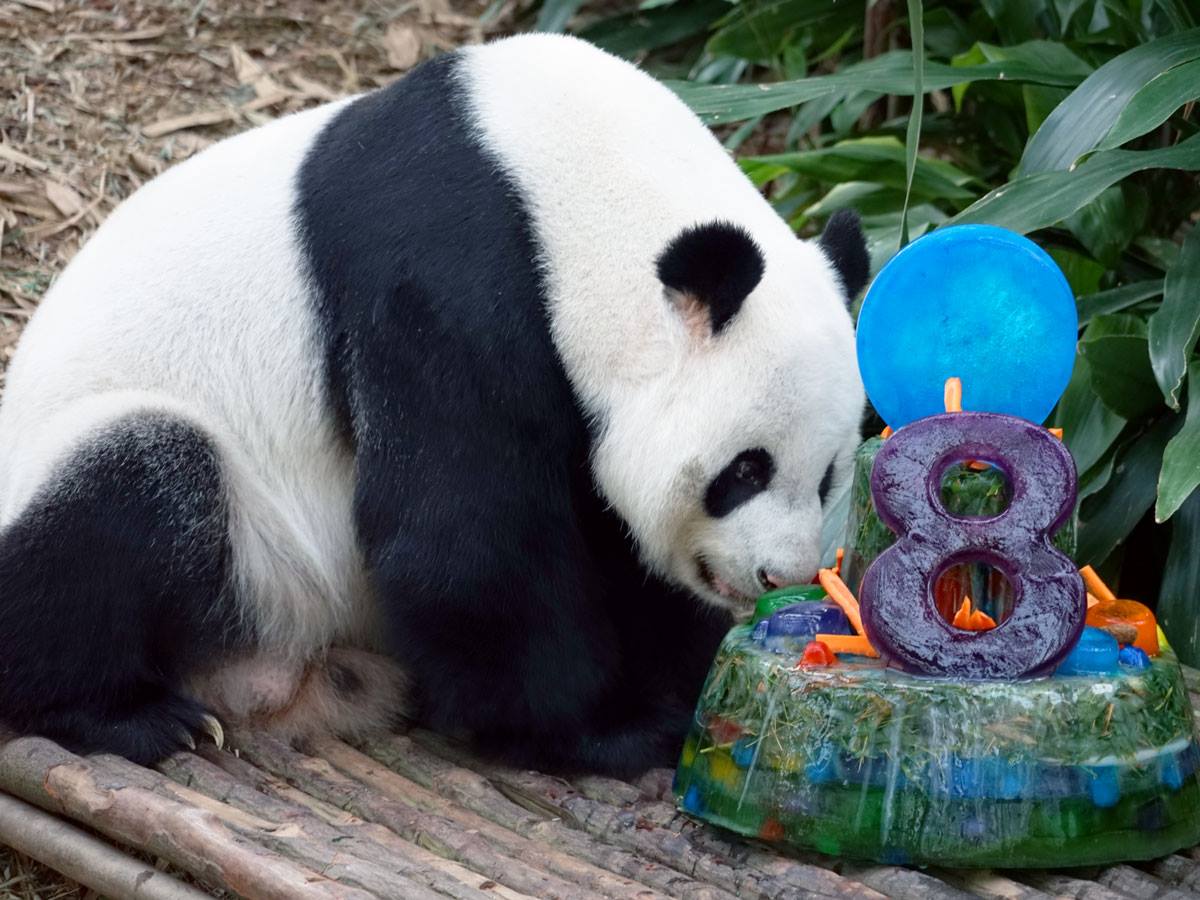 Kai Kai turned 8 earlier this month. (Source: Wildlife Reserves Singapore Facebook page)
Kai Kai turned 8 earlier this month. (Source: Wildlife Reserves Singapore Facebook page)
That's why successfully mating the male Kai Kai and the female Jia Jia was of such vital importance for everything-also-must-succeed Singapore. Because they failed to conceive through normal sex, however, financial resource-rich Singapore opted for the costly but potentially more effective route: IVF (aka artificial insemination).
And yes, things happened! But the keepers on Wednesday announced their conclusion that they had been trolled by Jia Jia, now seven years old, all along.
Unfortunately, the exciting signs she showed were those of a phenomenon called "pseudo-pregnancy", where a giant panda spends months keeping hopeful zookeepers on tenterhooks, waiting, hoping, hanging onto every drop of their urine for signs of new life.
The painstaking process of monitoring and scanning Ms Lazybones's tummy is a tedious one indeed, which the folks at River Safari have shared step-by-step with us:
First, they pick up Jia Jia's pee from the floor in her den with syringes and transfer them into test tubes.
[video width="1920" height="1080" mp4="https://cdn.mothership.sg/1/2015/09/Video-Monitoring-Jia-Jias-Hormone-Levels.mp4"][/video]
Then, her pee is put into sophisticated machinery to examine its parts for the hormones typically present during pregnancy — they were present at increased levels, a promising sign.
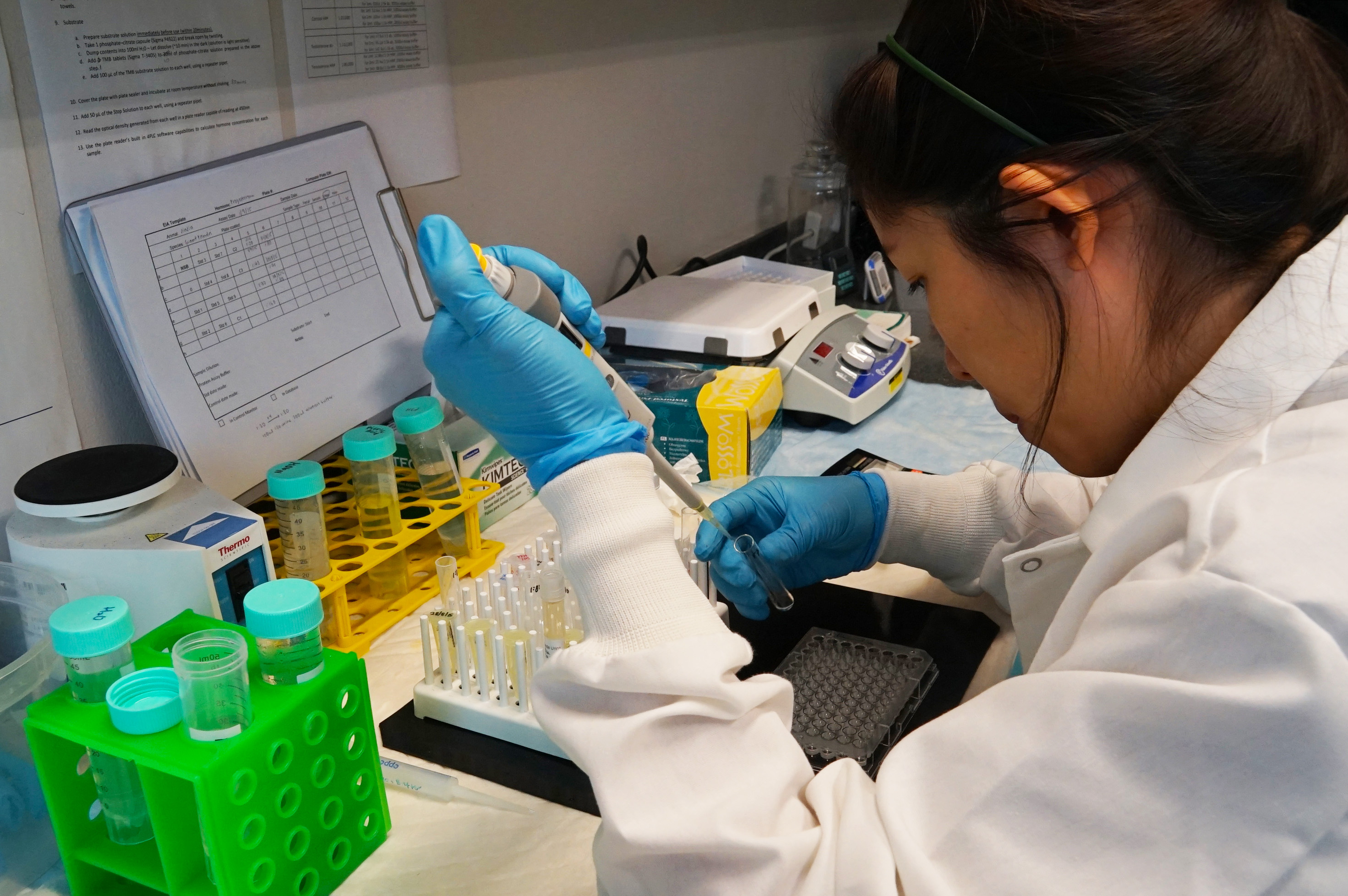 Photo courtesy of Wildlife Reserves Singapore
Photo courtesy of Wildlife Reserves Singapore
Jia Jia's keepers also studied her movement carefully — you know, eating, sleeping, rolling around, walking just a tiny bit but mostly eating and sleeping.
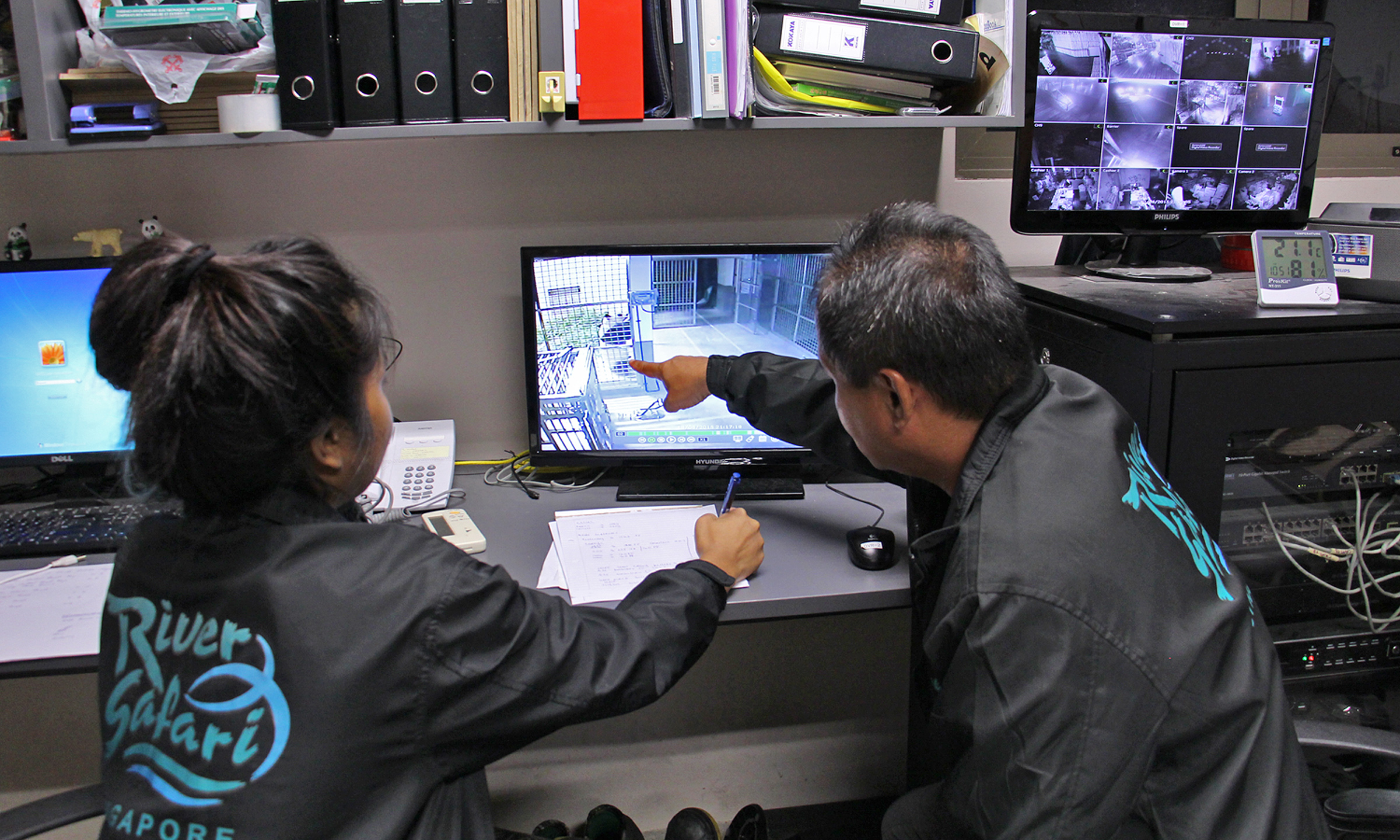 Yes I think I saw her move... is that one eye open? Ok, nope. (Photo courtesy of Wildlife Reserves Singapore)
Yes I think I saw her move... is that one eye open? Ok, nope. (Photo courtesy of Wildlife Reserves Singapore)
Her behaviour seemed consistent to that of a pregnant panda: eating less bamboo and sleeping more (indeed, doesn't it sound good to be a pregnant panda, especially with the sleeping part?).
Then comes the ultrasound process:
[video width="1920" height="1080" mp4="https://cdn.mothership.sg/1/2015/09/Video-Jia-Jia-Undergoes-Ultrasound.mp4"][/video]
They lure her out of her den into a smaller metal cage, then get her to lie down and slather some ultrasound gel onto her tummy:
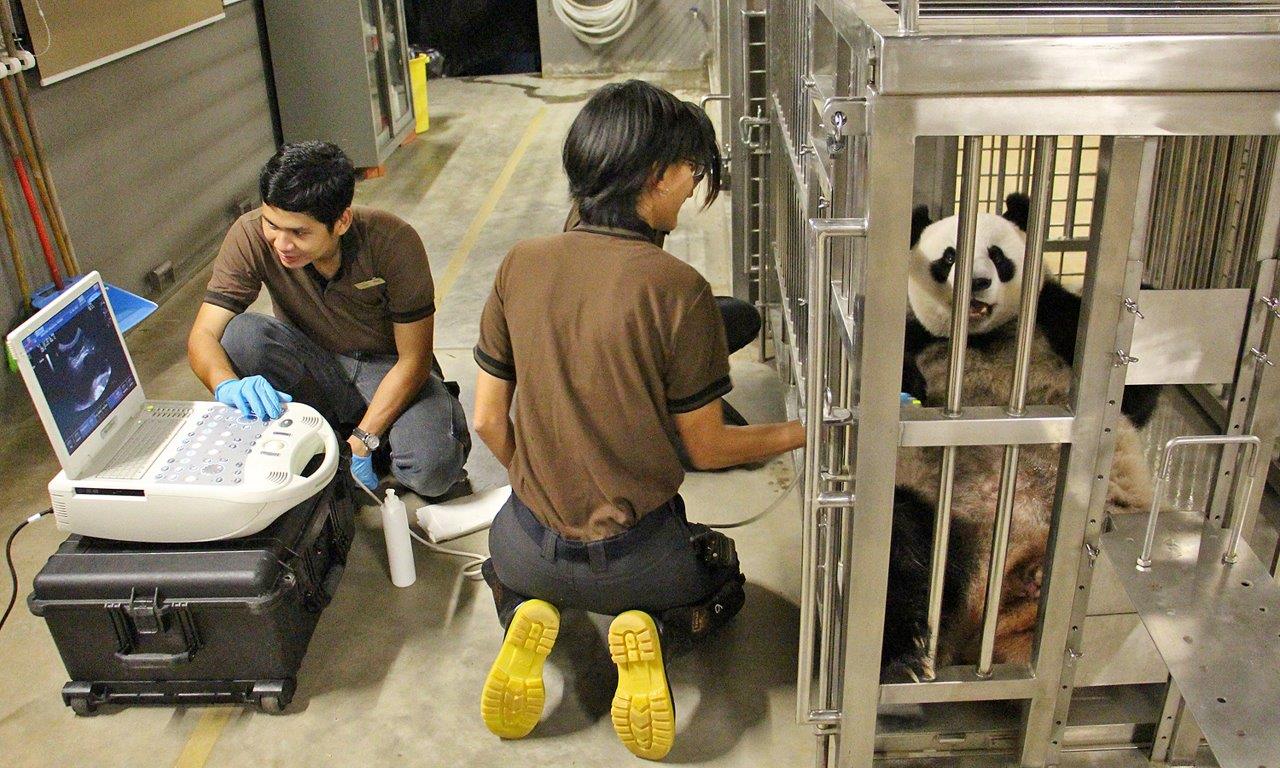 Photo courtesy of Wildlife Reserves Singapore
Photo courtesy of Wildlife Reserves Singapore
The analysis begins:
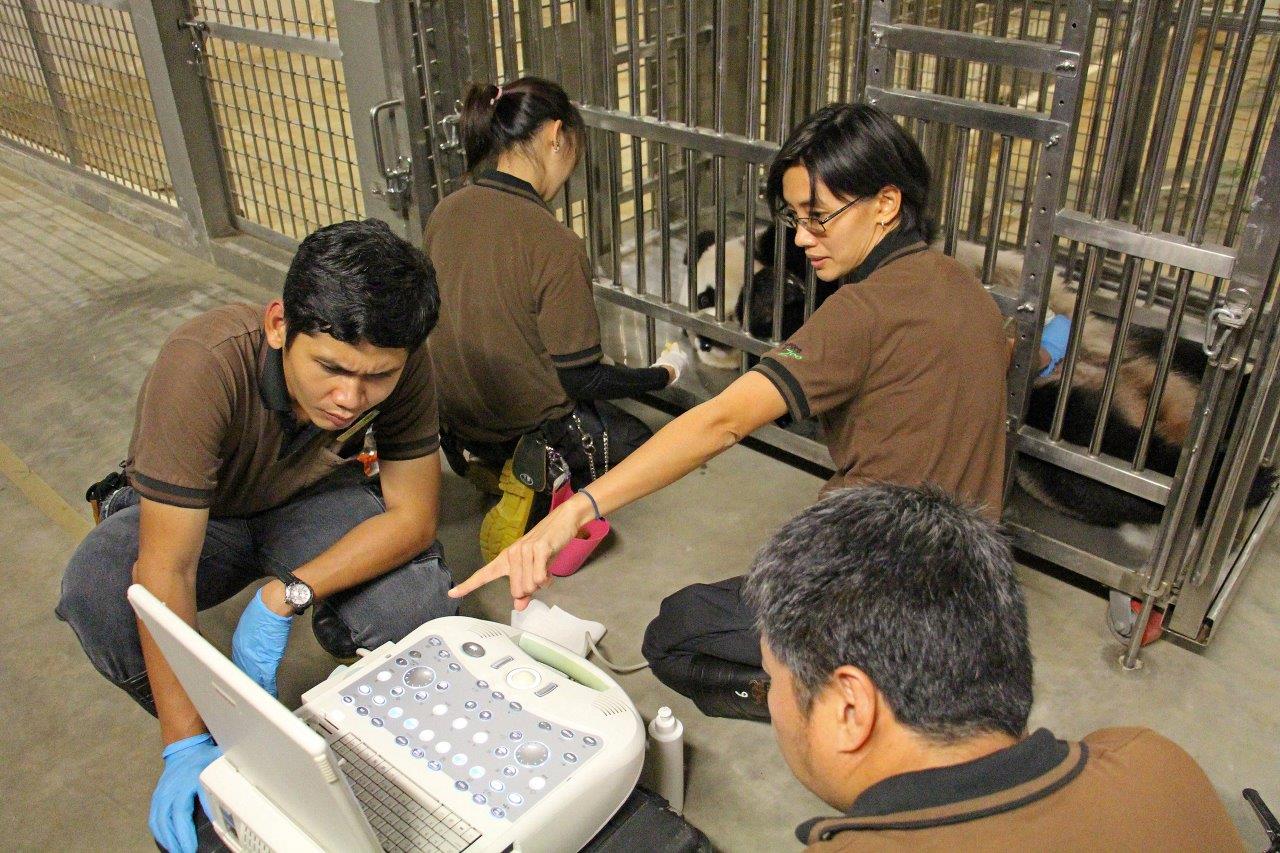 "Is that what I think it is? Yes? Yes... No." (Photo courtesy of Wildlife Reserves Singapore)
"Is that what I think it is? Yes? Yes... No." (Photo courtesy of Wildlife Reserves Singapore)
But now that the birthing window of 95 - 160 days has passed, with no sign of any new cubs being born, the scientists at the River Safari have concluded (probably to their chagrin) that they have all been trolled. High-tech equipment and all.
Meanwhile, they'll keep their current findings and try again next year — working in everything from temperature and light variations to trying to bring Kai Kai and Jia Jia together more frequently to get them more used to each other.
Well-played, Jia Jia; well-played.
If you like what you read, follow us on Facebook and Twitter to get the latest updates.
If you like what you read, follow us on Facebook, Instagram, Twitter and Telegram to get the latest updates.
